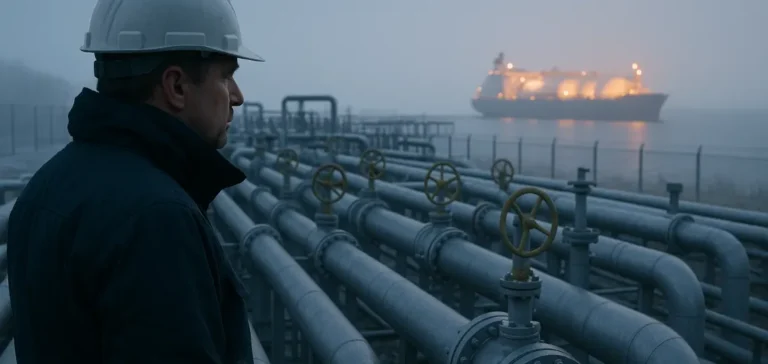The European Commission has formalized an ambitious plan for the gradual withdrawal of Russian gas from the European market, setting strict deadlines for each type of contract. Beginning January 1, 2026, no new contracts related to pipeline or liquefied natural gas (LNG) imports will be authorized. Existing short-term contracts must end before June 17, 2026, while long-term contracts already in place will be definitively terminated by the end of December 2027. The plan also includes banning port services for Russian LNG starting January 1, 2028.
A Legal Mechanism to Bypass Internal Vetoes
To ensure effective implementation despite internal opposition, particularly from Hungary and Slovakia, the European Commission has opted for a legislative procedure adoptable by qualified majority. This procedure requires support from at least 15 member states representing a minimum of 65% of the EU’s population, thereby significantly reducing potential blockages. Additionally, to facilitate early contract terminations by European companies, the Commission introduced a possible recourse to force majeure clauses. This option aims to legally protect companies from financial risks associated with premature contractual breaches.
Mandatory Diversification Plans for Member States
To support this phased withdrawal, the Commission is requiring member states to submit precise national plans for diversifying their energy supplies. These plans must be presented no later than March 1, 2026, clearly detailing measures intended to offset the cessation of Russian gas imports. The declared objective by Brussels is to ensure energy security without causing significant supply disruptions for the most dependent member states. Temporary derogations are provided for landlocked countries, giving them additional time to conclude their existing contracts.
Economic Challenges and Internal Resistance
European countries heavily reliant on Russian gas, particularly Hungary and Slovakia, express serious concerns about the economic and legal consequences of this ban. Hungarian and Slovak authorities notably highlight risks associated with early contract termination, potentially leading to significant financial penalties imposed by concerned Russian companies. Gazprom, Russia’s primary gas company, reportedly has already indicated potential penalties amounting to several billion euros in the event of premature contract interruptions. These concerns underline the complexity of the economic challenges posed by this gradual withdrawal for several EU member states.
Extension of Measures to Oil and Nuclear Prospects
Gas is not the only resource targeted by this European strategy: a specific component regarding the complete cessation of Russian oil imports by the end of 2027 is also planned. Similar to gas, each member state will be required to provide a precise and realistic timeline for stopping its oil imports from Russia. In parallel, the European Commission is exploring the gradual reduction of dependency on Russian nuclear fuels over the longer term, toward the 2030s. This extension of measures reflects Europe’s intent to simultaneously act on several energy fronts.
Strategic and Economic Implications of the European Timeline
The timeline unveiled by the Commission entails major adaptations for European energy companies in their contractual and commercial strategies in the short term. Transitioning to alternative supply sources, such as American LNG, is likely to create new competitive tensions in the European energy market. European companies must therefore effectively manage financial and legal risks while ensuring their security of supply. This ambitious timeline significantly reshapes the energy prospects of the European Union and durably modifies its internal energy balance.






















